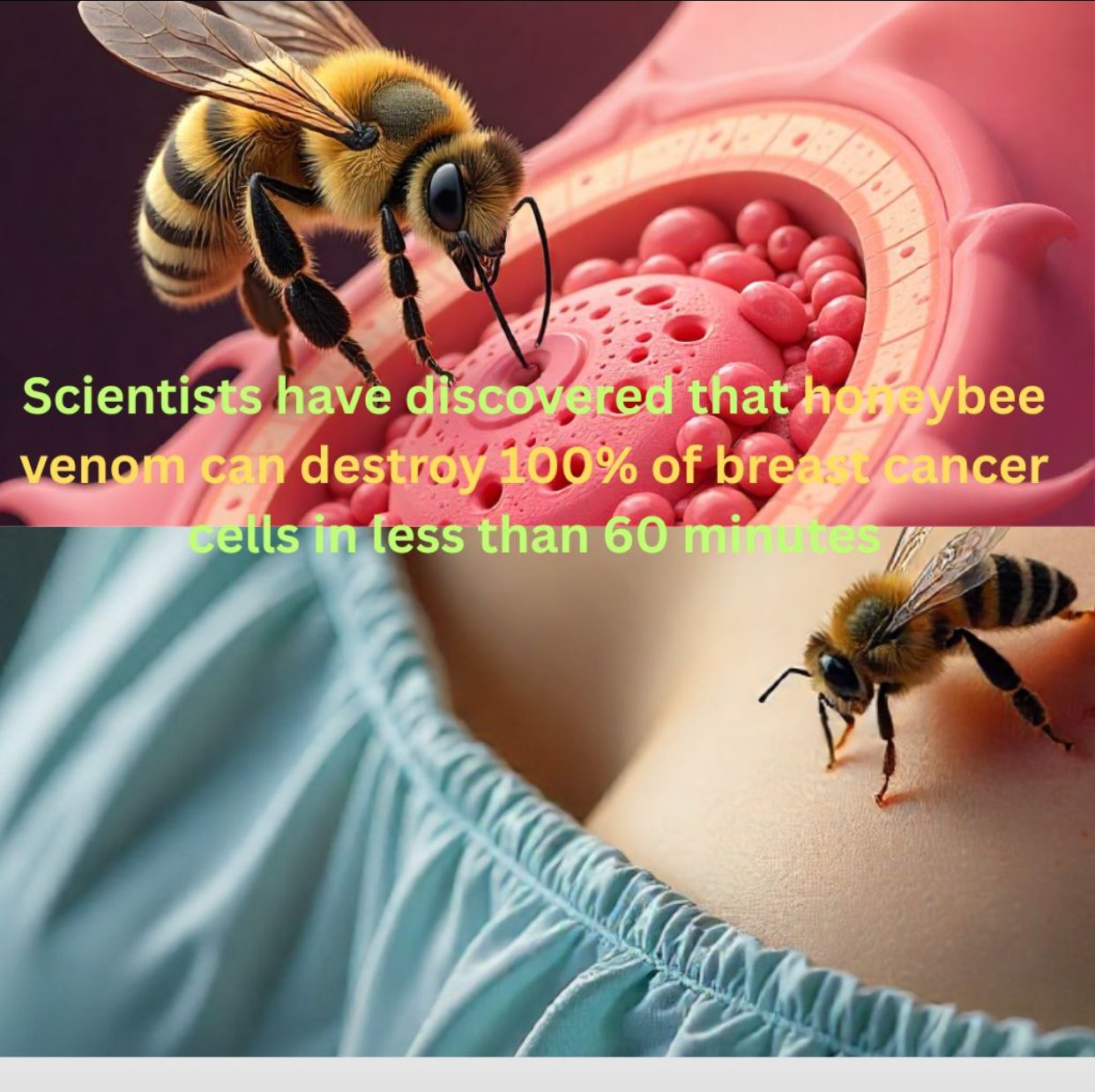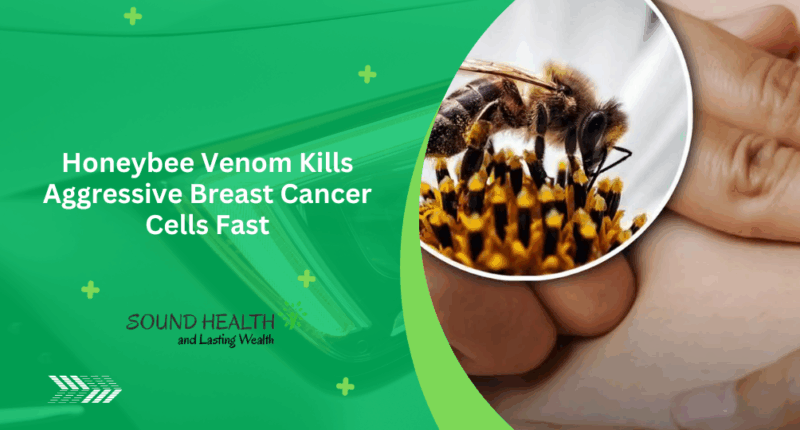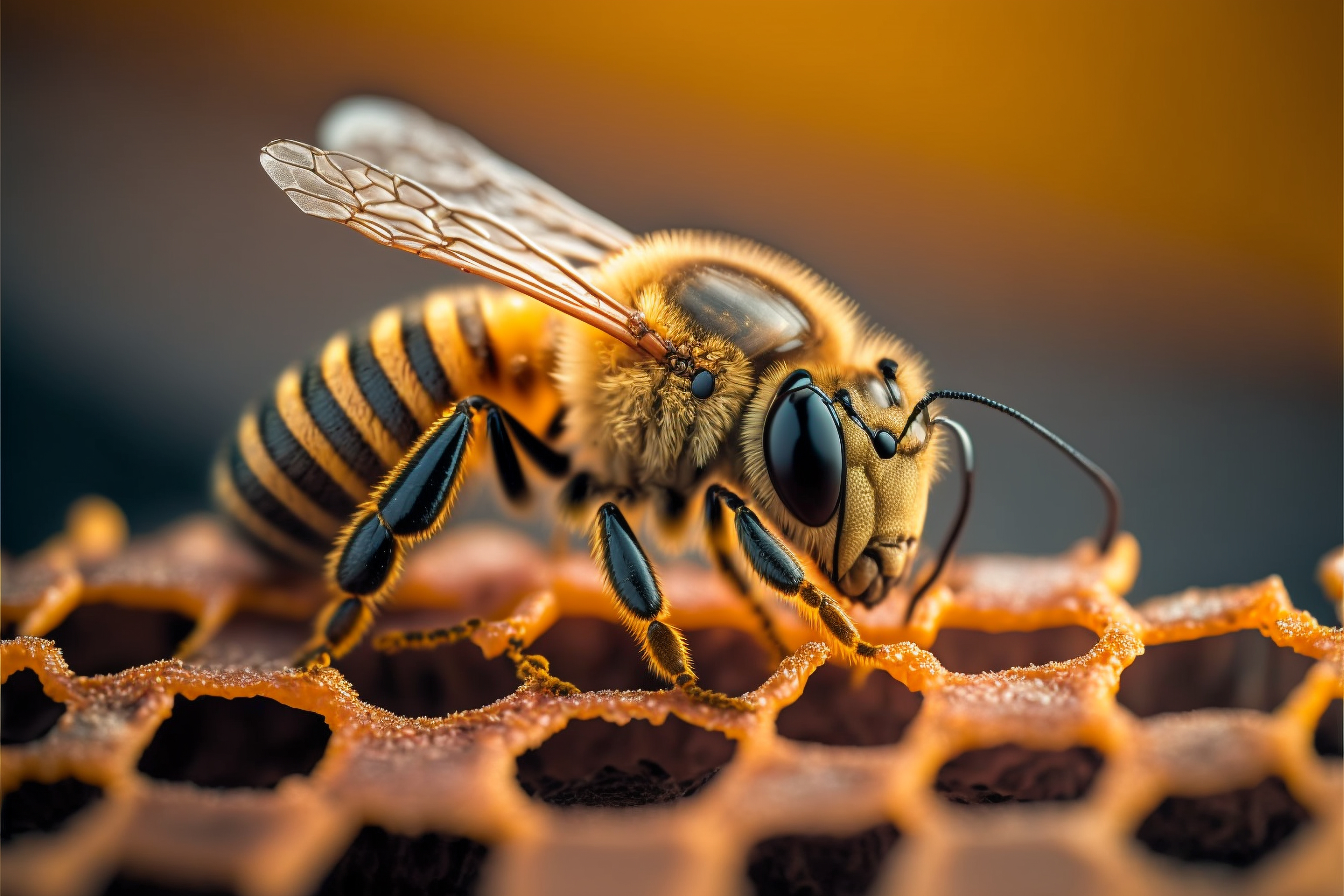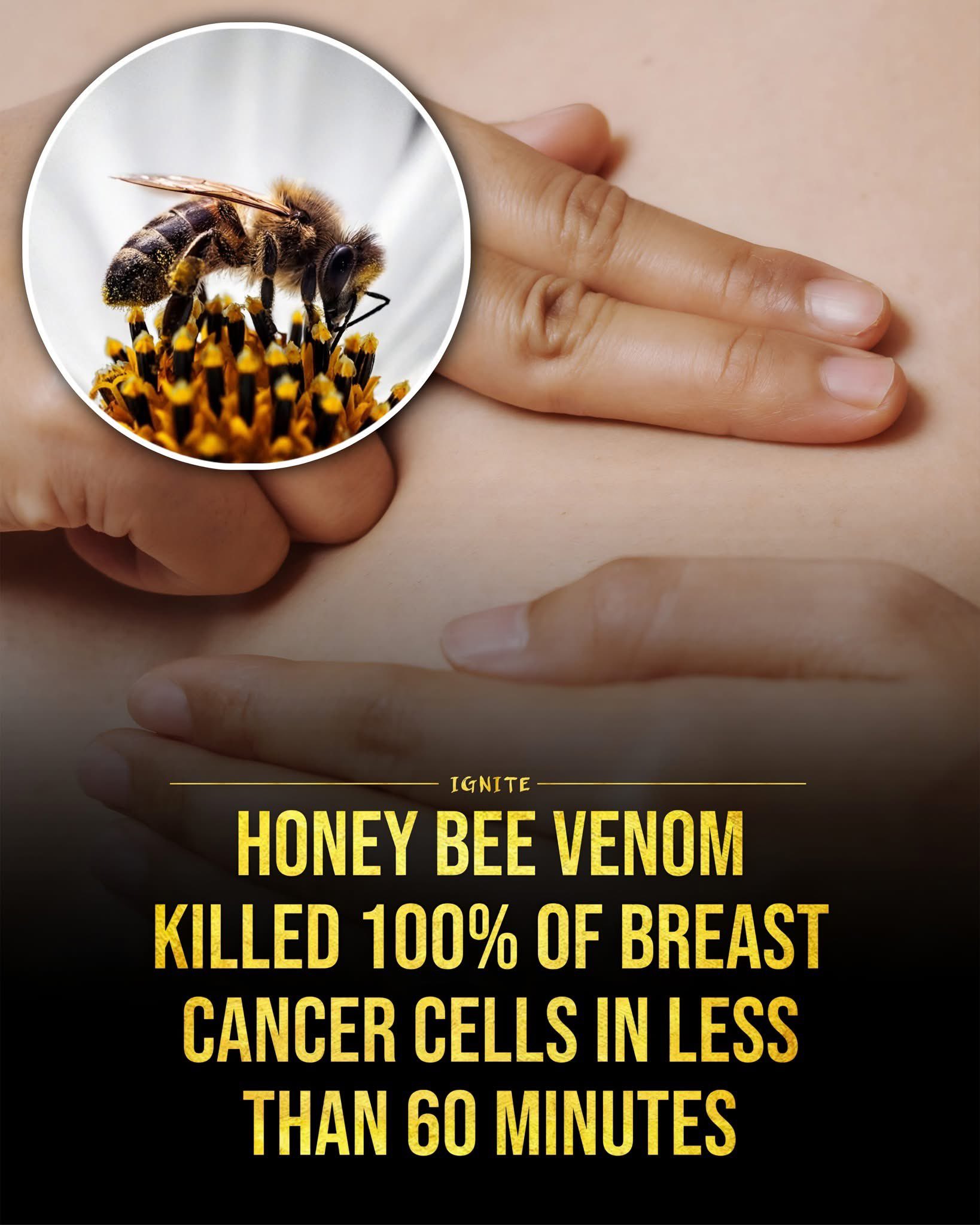Honeybee venom has shown remarkable potential in killing aggressive breast cancer cells, according to groundbreaking Australian research. Scientists led by Ciara Duffy, a 25-year-old PhD researcher, discovered that honeybee venom and its active compound, melittin, rapidly destroy difficult-to-treat breast cancer cells in lab tests. This discovery could pave the way for innovative breast cancer treatments in the future.
What Did the Researchers Find?
The research conducted by Dr. Ciara Duffy at the Harry Perkins Institute of Medical Research and the University of Western Australia revealed that honeybee venom significantly, selectively, and rapidly reduces the viability of two aggressive breast cancer types: triple-negative breast cancer and HER2-enriched breast cancer. These types are known for resistance to existing treatments and poorer patient outcomes. The venom’s potent compound, melittin, was able to completely destroy cancer cell membranes within 60 minutes while minimally affecting normal cells. Additionally, within just 20 minutes, melittin disrupted the chemical signals essential for cancer cell growth and division, effectively shutting down the cancer’s communication pathways. A specific concentration of honeybee venom achieved 100% cancer cell death in lab conditions, showcasing its extraordinary potency without severe side effects on healthy tissue.
HOW HONEYBEE VENOM KILLS CANCER CELLS
Researchers have discovered that honeybee venom contains a compound called melittin that can kill cancer cells.
Melittin disrupts the cancer cell membranes, causing them to break down and die while leaving healthy cells largely unharmed.… pic.twitter.com/2zpFjVbdrK
— Mario Nawfal (@MarioNawfal) August 25, 2024
Could It Be Used in the Future?
This discovery holds promise for novel cancer therapies, though it is important to note that the research is still in early stages. The venom’s ability to target aggressive breast cancer forms with minimal damage to normal cells could make it an excellent candidate for complementary treatment alongside existing chemotherapy drugs. Lab studies demonstrated outstanding effectiveness, and there is potential for developing synthetic melittin-based treatments due to its ability to replicate the venom’s anti-cancer effects. However, extensive clinical trials are needed before honeybee venom therapies can be safely used in clinical practice. The research also highlights the advantage of leveraging natural compounds for cancer treatment innovation, offering hope for addressing breast cancer subtypes that currently have limited options.

Can Breast Cancer Patients Take Bee Pollen?
While honeybee venom targets cancer cells specifically, the question of whether breast cancer patients can consume bee pollen or honey is separate and more related to symptom management. Studies show that honey and bee pollen may help alleviate menopausal symptoms often experienced by breast cancer patients undergoing anti-hormonal treatments such as tamoxifen. Symptoms like hot flushes, night sweats, and depression showed improvement in patients consuming bee pollen-honey mixtures. However, these results relate to symptom relief rather than cancer treatment, and patients should always consult healthcare professionals before adding bee pollen or honey supplements to their diet during cancer therapy.
Understanding the Power of Honeybee Venom Against Cancer
- Honeybee venom contains melittin, a small peptide that punches holes in cancer cell membranes.
- Melittin disrupts essential chemical signals for cancer cell growth within minutes.
- The venom specifically targets aggressive triple-negative and HER2-enriched breast cancer cells.
- Normal cells show minimal adverse effects, suggesting selective targeting.
- Research used venom collected from hundreds of honeybees, ensuring reproducibility.
This natural compound’s precision targeting and rapid action are particularly impressive in the fight against breast cancer forms infamous for drug resistance and poor prognosis. Given the global impact of breast cancer—being the most common cancer among women—these findings offer a beacon of hope and a possible breakthrough in oncological research.
The research led by Ciara Duffy showcases how interdisciplinary approaches combining natural science and medical research can unlock new frontiers in cancer treatment. While much work remains before honeybee venom can be widely adopted as a therapy, its ability to eradicate aggressive breast cancer cells in laboratory settings marks a significant step toward more effective and less harmful cancer treatments.
This newly discovered potential exemplifies how nature’s compounds might be harnessed to improve cancer patient outcomes, highlighting the ongoing need for innovative approaches in the fight against one of the most challenging diseases. Breast cancer patients and the wider medical community eagerly await further developments that could transform this promising research from the lab bench to the bedside.
Also Read | Elle Macpherson’s Defies Odds with Holistic Approach to Breast Cancer Treatments












